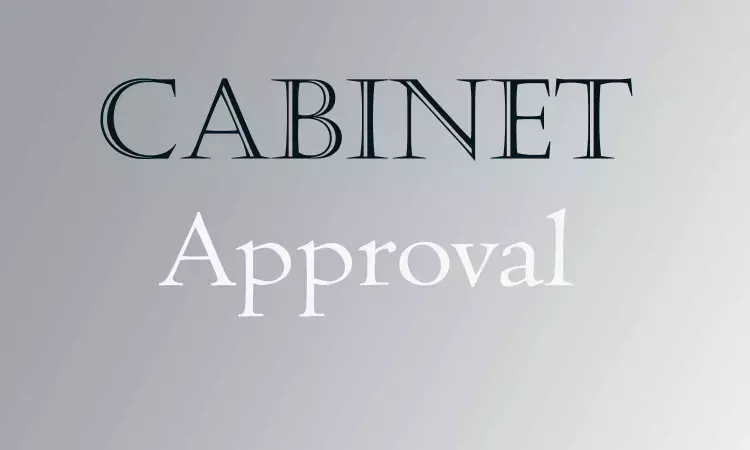- Home
- Medical news & Guidelines
- Anesthesiology
- Cardiology and CTVS
- Critical Care
- Dentistry
- Dermatology
- Diabetes and Endocrinology
- ENT
- Gastroenterology
- Medicine
- Nephrology
- Neurology
- Obstretics-Gynaecology
- Oncology
- Ophthalmology
- Orthopaedics
- Pediatrics-Neonatology
- Psychiatry
- Pulmonology
- Radiology
- Surgery
- Urology
- Laboratory Medicine
- Diet
- Nursing
- Paramedical
- Physiotherapy
- Health news
- Fact Check
- Bone Health Fact Check
- Brain Health Fact Check
- Cancer Related Fact Check
- Child Care Fact Check
- Dental and oral health fact check
- Diabetes and metabolic health fact check
- Diet and Nutrition Fact Check
- Eye and ENT Care Fact Check
- Fitness fact check
- Gut health fact check
- Heart health fact check
- Kidney health fact check
- Medical education fact check
- Men's health fact check
- Respiratory fact check
- Skin and hair care fact check
- Vaccine and Immunization fact check
- Women's health fact check
- AYUSH
- State News
- Andaman and Nicobar Islands
- Andhra Pradesh
- Arunachal Pradesh
- Assam
- Bihar
- Chandigarh
- Chattisgarh
- Dadra and Nagar Haveli
- Daman and Diu
- Delhi
- Goa
- Gujarat
- Haryana
- Himachal Pradesh
- Jammu & Kashmir
- Jharkhand
- Karnataka
- Kerala
- Ladakh
- Lakshadweep
- Madhya Pradesh
- Maharashtra
- Manipur
- Meghalaya
- Mizoram
- Nagaland
- Odisha
- Puducherry
- Punjab
- Rajasthan
- Sikkim
- Tamil Nadu
- Telangana
- Tripura
- Uttar Pradesh
- Uttrakhand
- West Bengal
- Medical Education
- Industry
Cabinet nod to Rs 15,000 crore PLI scheme for pharma sector

New Delhi: The government on Wednesday approved a production-linked incentive (PLI) scheme for the pharmaceutical sector, entailing an outlay of Rs 15,000 crore.
The Union Cabinet, chaired by Prime Minister Narendra Modi, approved the scheme which will benefit domestic manufacturers, help create employment and is expected to contribute to the availability of a wider range of affordable medicines for consumers.
The duration of the scheme would be from 2020-21 to 2028-29 and is expected to promote the production of high value products in the country and increase the value addition in exports, an official release said.
The total incremental sales of Rs 2,94,000 crore and total incremental exports of Rs 1,96,000 crore are estimated during six years from 2022-23 to 2027-28, it added.
The scheme is expected to generate 20,000 direct jobs and 80,000 indirect employment for both skilled and unskilled personnel, as a result of growth in the sector, the release said.
"The scheme is also expected to bring in investment of Rs 15,000 crore in the pharmaceutical sector," it added.
The PLI scheme is further expected to promote innovation for development of complex and high-tech products including products of emerging therapies and in-vitro diagnostic services as also self-reliance in important drugs.
It is also expected to improve accessibility and affordability of medical products including orphan drugs to the Indian population, the release said.
"The objective of the scheme is to enhance India''s manufacturing capabilities by increasing investment and production in the sector and contributing to product diversification to high value goods in the pharmaceutical sector.
"One of the further objectives of the scheme is to create global champions out of India who have the potential to grow in size and scale using cutting edge technology and thereby penetrate the global value chains," it noted.
The companies registered in the country will be divided across three groups based on their global manufacturing revenue (GMR) to ensure wider applicability of the scheme across the pharmaceutical industry and at the same time meet the objectives of the scheme.
The Group A would comprise entities having GMR (FY 2019-20) of pharmaceutical goods more than or equal to Rs 5,000 crore. The incentive allocated to such applicants is Rs 11,000 crore.
Applicants having GMR (2019-20) of pharmaceutical goods between Rs 500 crore and Rs 5,000 crore would be entitled for incentives worth Rs 2,250 crore. Similarly, applicants having GMR of less than Rs 500 crore would be entitled for incentives worth Rs 1,750 crore.
A sub-group for MSME industry will be made within this group, given their specific challenges and circumstances, the release said.
The scheme shall also cover pharmaceutical goods under three categories. Biopharmaceuticals, complex generic drugs, patented drugs among others have been clubbed in the first category, while active pharmaceutical ingredients and autoimmune drugs, anti-cancer drugs, anti-diabetic drugs are part of the second and third categories respectively.
The rate of incentive will be 10 per cent (of incremental sales value) for Category 1 and Category 2 products for the first four years, 8 per cent for the fifth year and 6 per cent for the sixth year of production under the scheme.
Besides, the rate of incentive will be 5 per cent (of incremental sales value) for Category 3 products for the first four years, 4 per cent for the fifth year and 3 per cent for the sixth year of production under the scheme.
The Indian pharmaceutical industry is the third largest in the world by volume and is worth USD 40 billion.
Ruchika Sharma joined Medical Dialogue as an Correspondent for the Business Section in 2019. She covers all the updates in the Pharmaceutical field, Policy, Insurance, Business Healthcare, Medical News, Health News, Pharma News, Healthcare and Investment. She has completed her B.Com from Delhi University and then pursued postgraduation in M.Com. She can be contacted at editorial@medicaldialogues.in Contact no. 011-43720751


